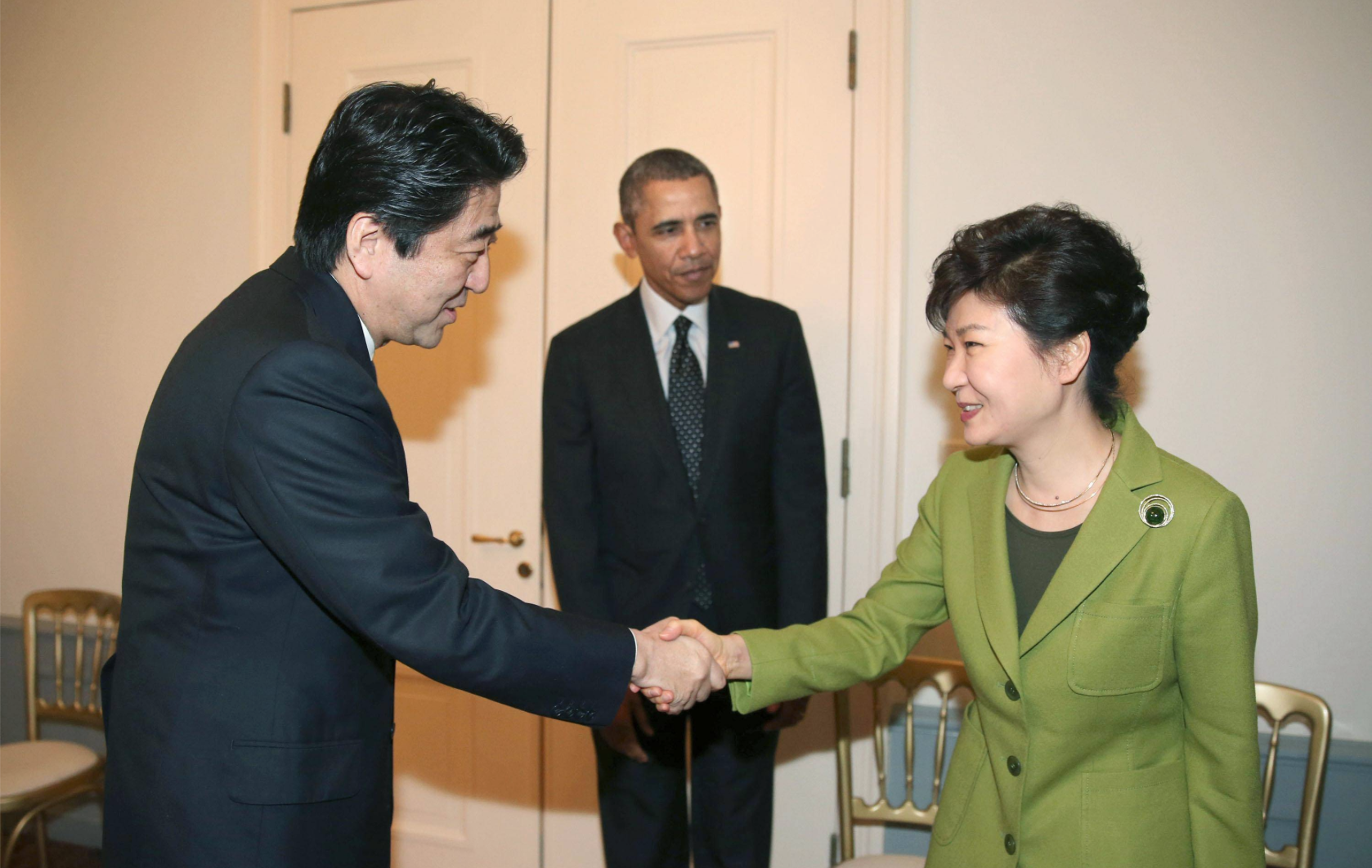
The prime minister of Japan and the president of the Republic of Korea “are the only ones at the moment” who are capable of improving relations between these two important American allies in Asia, but the question remains “how does it get fixed,” according to a Tuesday panel on the state of relations between the two countries.
Speaking Tuesday at the Heritage Foundation, a Washington, D.C., think-tank, Sheila Smith, a senior fellow for Japan studies at the Council on Foreign Relations, said Japan’s Prime Minister Shinzo Abe’s statement marking the 70th anniversary of the end of World War II showed “he took a lessons-learned approach” and restated that he saw Japan moving ahead with other nations in a peaceful and prosperous Asia.
In the statement — issued on Friday — Abe said he expressed “profound grief” over the loss of life during the conflict.
“Upon the innocent people did our country inflict immeasurable damage and suffering,” read the statement.
“When I squarely contemplate this obvious fact, even now, I find myself speechless and my heart is rent with the utmost grief.”
Noting that Abe’s speech was endorsed by his Cabinet, Evan J. S. Revere, a former principal deputy assistant secretary of State for East Asia, now affiliated with the Brookings Institution, said at the panel discussion that Korean President Park Geun-hye “seems to be leaving the door[s] open [to better relations . . . and not slamming them.”
Although Korea wanted Abe to specifically to address the issue of Korean women being forced into sexual slavery during World War II, which was not done, Revere said the lengthy statement was surprising, using words such as “aggression,” “colonial domination,” “deep remorse” and “apologize.”
Abe acknowledged “there were women behind the battlefields whose honor and dignity were severely injured” but did not speak to a specific nationality.
The United States and Australia quickly “welcomed the statement,” said Michael Green, Japan chair at the Center for Strategic and International studies and an associate professor at Georgetown University. He said the response by the two countries also “had an impact on Seoul.”
“I think there’s been a lot of learning by Washington in both directions” to improve relations between the two countries and the United States has been giving Seoul and Tokyo “some good advice” on how to do it, Revere added.
Smith noted that in recent poll 80 percent of the Japanese people indicated they “do not trust the Koreans. On [Park’s and Abe’s] respective watches it got worse,” Revere said, although in recent months relations “turned a corner” for the better. He described relations before the recent shift as being in “a depressing funk.”
The statement “will not make things worse “between the two” and there was “a much more positive tone this year” from Korea “than what you saw coming out of China” in assessing Abe’s remarks, Smith said.
“[Japan’s] prime minister has come a long way to meeting Korean concerns,” Revere said.
Green predicted that future Japanese prime ministers will not apologize further for World War II, but will stand by the statements of previous prime ministers. “Abe did help himself on [winning] a legislative ‘Ok’ on security” of playing a larger role in world affairs, and the statement provided “some momentum” to setting up a meeting of the heads of state meeting of Japan, Korea and China to discuss mutual concerns.





